Taiwan, the hot spot where superpowers collide
Caught in the hegemonic tug-of-war between the US and China, the explosive potential of the Asian archipelago has grown since the invasion of Ukraine. EL PAÍS travelled to the heart of the conflict
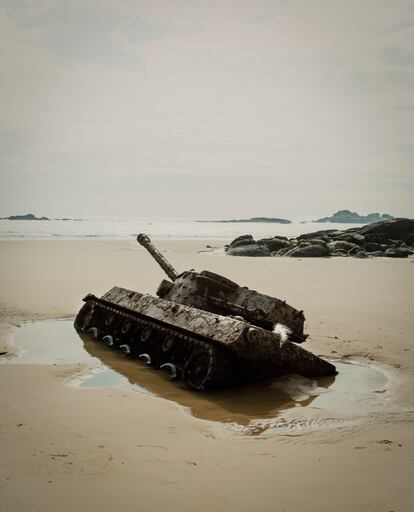
Some women bend down in the water, searching for clams. They know the history of this place: they talk about how, when they were girls, they would hide in shelters to protect themselves from the bombs that the People’s Liberation Army – led by Mao Zedong – launched from the other shore.
These are “very vivid” memories, they say. One of them expresses her fear that those days will return; that China will attack Taiwan. However, she doesn’t believe it will truly happen. Another woman shrugs: “What can you do? If it happens, it happens.”
The waters of the Taiwan Strait convey a strange peace, indifferent to the struggle between superpowers. The waves kiss the sand; the day is warm, perfect for a walk on the beach. But there is something strange in the landscape – paradoxical elements, typical of enclaves that have been choked by history.
A line of rusty spikes from the old defenses – meant to stop communist incursions – soon becomes visible along the idyllic coast. In the background, there’s a protrusion that looks like a rock… but it’s not. It’s actually an old, half-buried American tank in the sand. From another era, it evokes the idea of a conflict that refuses to disappear.
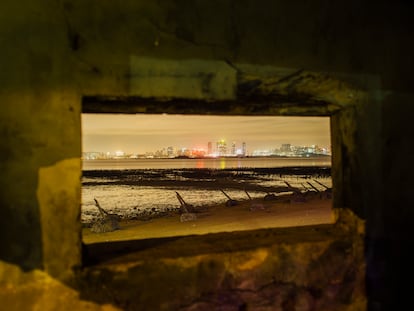
On these beaches of Kinmen – a Taiwanese archipelago located two miles from mainland China – the Nationalists stopped the advance of communist troops in 1949. They fled in retreat to the island of Taiwan as China fell. It allowed those who lost the Chinese Civil War (1927-49) to establish a kind of government-in-exile in Taipei, under the leadership of the Kuomintang leader and former ruler of China, Chiang Kai-shek. The island became known as the Republic of China, in contrast to the newly-formed People’s Republic of China under Mao. Its birth was the origin of one of the greatest geopolitical conflicts of our era. A remnant of the Cold War, it’s still highly volatile – a place where the two great powers of the 21st-century collide: the United States and China.
For years, thousands of soldiers were stationed at Kinmen. It received barrages of bombardments, while strained relations between Washington and Beijing resulted in a nuclear threat constantly lurking. The island of Taiwan proper – where most of Taiwan’s 23 million people live – lies six miles to the east. But this group of small islands – so close to China that one could swim across – offers itself as an advanced observation point for measurement of tensions.
From the closest point to mainland China, you can clearly distinguish the buildings on the coast, the little sailboats… the life on the other side that can almost be touched. With binoculars, you can also read the huge characters written by Beijing to convince the Taiwanese of a Hong Kong-style solution: “One country, two systems.” The government in Taipei also estimates that, on the other shore, there are more than 1,000 missiles aimed at Taiwan.
He Chihyi
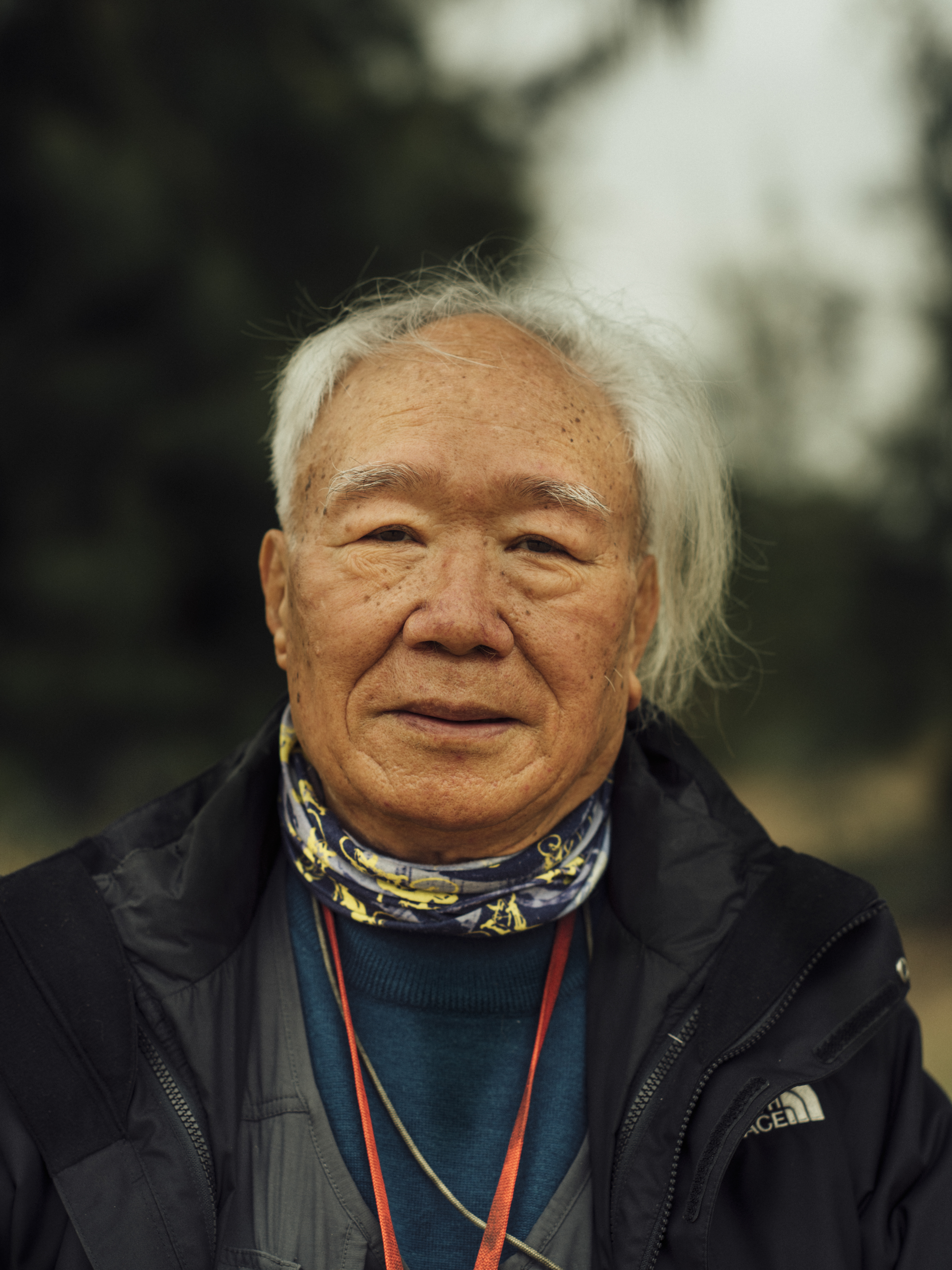
“America has manipulated us. We must reunite”
Today, Kinmen no longer has a military presence. It’s become a tourist enclave, where travelers come to take photos of China. The place is something of a microcosm, offering many perspectives from Taiwanese citizens.
Lii Wen, 33, is visiting: he just took a photo with China in the background. He is a local politician from another small archipelago called Matsu. He is a member of the Democratic Progressive Party (DPP) – currently in government in Taiwan – and a skeptic of China. Wen advocates maintaining the status quo and, at the same time, improving defensive capabilities: “We must be prepared for any eventuality.”
Another tourist takes the opposite view. He Chihyi, 80, a former Taiwanese Air Force mechanic, calls for a merger with the People’s Republic. “The United States has manipulated us. We must reunite,” he affirms.
Kinmen is one of those border places with mixed histories. After the pandemic, the ferries – which take just a few minutes to arrive from China – began to operate again. At the port terminal, Mao – a 37-year-old Chinese woman, married to a Taiwanese resident on the island – waits to board with a baby in her arms. This is the first time in three years that she has crossed over to China to see her parents. They are looking forward to meeting their grandson.
For a few years after the communist takeover, Taipei was the only Chinese government recognized by the international community. However, the situation took a turn in 1971, when Taiwan lost its seat at the UN in favor of the People’s Republic. Many countries began a transfer of diplomatic ties to Beijing, accepting the “one China” principle.
Today, Taiwan is only officially recognized by 13 countries, but it continues to function as an independent territory. The United States – which recognized the People’s Republic in 1979 – administers its Taiwan policy through “strategic ambiguity,” never making it clear whether it would respond to a Chinese attack on the island. Thus, while Beijing claims it as an “inalienable part” of its territory and does not renounce the “use of force” to recover it, Washington supplies it with weapons. At any moment, a move by the two opponents could blow everything up.
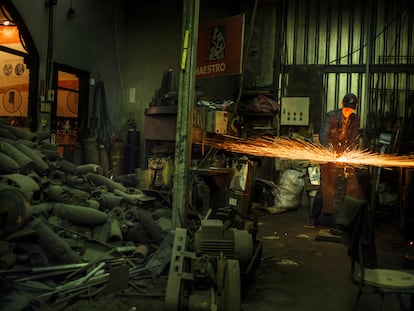
In Master Wu’s metalship in Kinmen, there’s a huge pile of hundreds of shells. This blacksmith – born in 1957 – is dedicated to transforming the steel from the old bombs (which were fired from communist China) into knives. Many of the shells never exploded.
Using a blowtorch, he cuts a piece the size of a mobile phone and, after putting it in the oven, beats and polishes it into a sharp blade. “The steel is of very good quality,” he notes. Sitting in front of a cup of tea, the blacksmith recalls his early childhood spent indoors and the feeling of growing up next to the Asian giant in the Cold War.
“It was like living next to a tiger.”
Decades later, détente was achieved and communications were opened between both sides. “People came and went,” he says wistfully. He would like to return to those days… but Wu believes the pandemic has led to a surge in anti-China sentiment in the rest of the world. He doesn’t want to hear about a war; he believes that, in the end, the victims are always innocent citizens and that the island has no chance against China. “Taiwan should remain neutral.”
Tensions have been rising in recent years as the rivalry between the United States and China has grown. If the competition between these two superpowers will set the course for the 21st century, Taiwan is the hot spot on the map where they could collide. The war in Ukraine has served as a reminder that tragedies are always just around the corner.
The turbulence reached high levels last summer with the visit to Taipei of then-speaker of the US House of Representatives, Nancy Pelosi. Beijing reacted furiously, initiating the largest military maneuvers in its history around the island. Missiles of unusual power surrounded the enclave – the Taiwanese government denounced that the deployment amounted to a “blockade.” The United States subsequently redoubled its military support for the island.
The Chinese government accuses Washington of trying to upset the status quo, supporting separatist forces and contravening the “one China” policy. “[The American government] is increasing the sale of arms and collaborating in military provocations,” denounced a statement put out by Beijing following Pelosi’s trip. The Chinese Communist Party (CPC) has also made it clear that any comparison with the war in Ukraine will have “serious consequences.”
Relations have not mended since the Pelosi scuffle. There was a mirage in November with the meeting at the G20 summit in Bali, Indonesia between Joe Biden and Xi Jinping… but the distrust between the two ways of seeing the world continues. The past few days have shown dangerous signs. After last week’s meeting in the United States between Taiwanese President Tsai Ing-wen and Speaker of the House of Representatives Kevin McCarthy, Beijing launched military exercises, simulating a three-day-long siege and bombardment of Taiwan. Chinese troops “are ready for deployment at all times and determined to crush any form of secession or independence [...] and foreign interference,” a People’s Liberation Army (PLA) spokesman said, after the drills concluded.
Syaru Shirley Lin
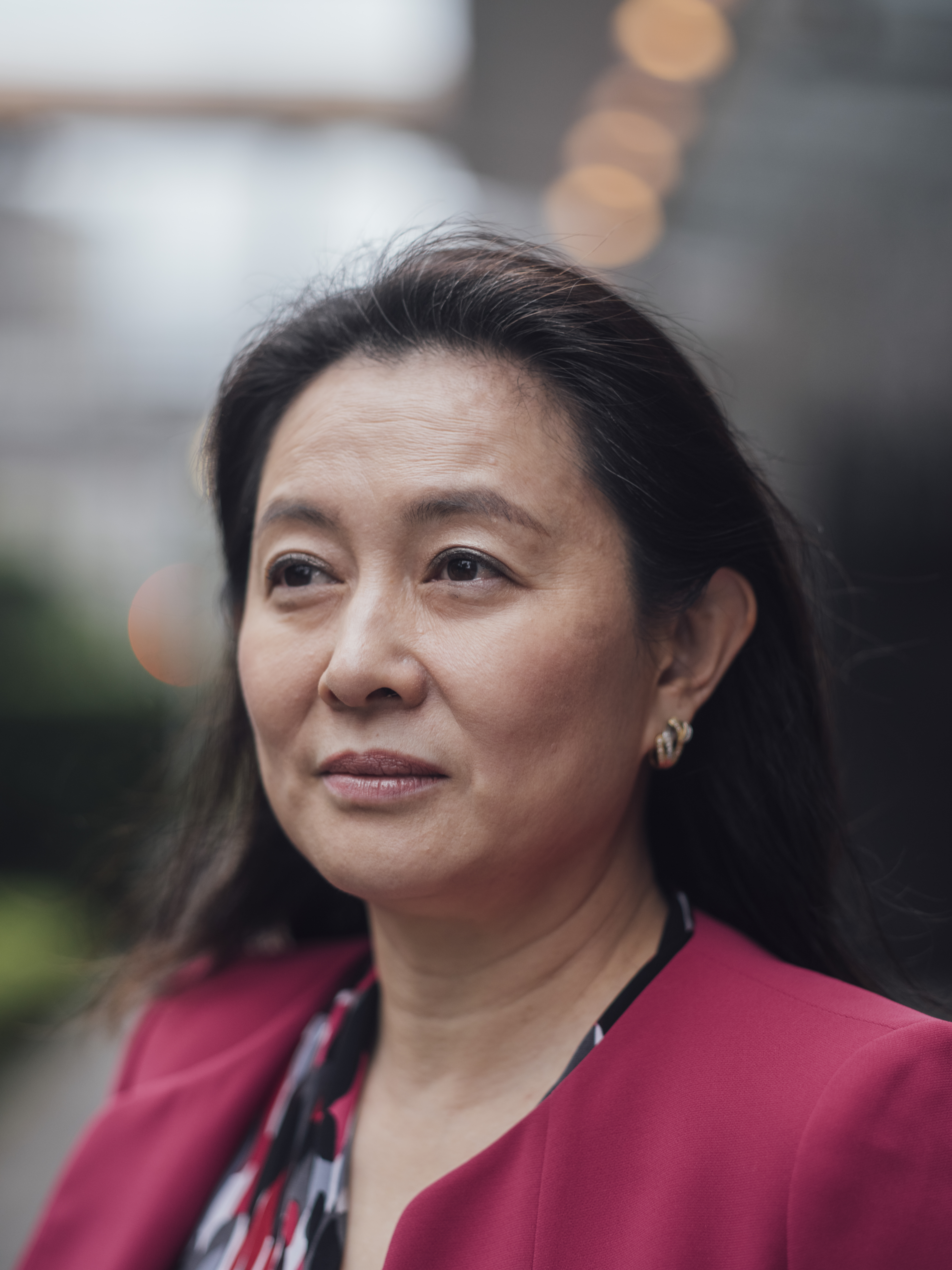
“Taiwan’s history is very long and complicated. Tragic”
“I see Taiwan as an advanced frontier of democratic society,” says Syaru Shirley Lin, a former Goldman Sachs financier who now heads the Center for Asia-Pacific Resilience and Innovation (CAPRI), an institute based in Taiwan and the US.
It’s Friday. Bustle reigns in an elegant cafe in the financial area of the capital, Taipei. Lin’s face turns serious: “If this world falls into darkness and China surpasses everyone, then Taiwan will not need to be attacked: it will become part of China.”
As she speaks, dusk falls and the lights come on in this neighborhood with a futuristic air – a reflection of technological power. Taiwan produces about 60% of the planet’s semiconductors and 90% of the most-advanced chips, mostly through a single company – TSMC – founded in the 1980s. GDP per capita exceeds $35,000: above Japan and more than double that of China.
Lin explains that this was not always the case. Taiwan, not so long ago, was an agrarian society, marked by European colonial powers, the Chinese empire and, briefly, the Japanese occupation during World War II.
“Taiwan’s history is very long and complicated,” she reflects. “Tragic.”
Lin – whose maternal grandmother was illiterate and worked in tea fields – is a summary of the island’s transformation. Thanks to ties to the US, Lin entered Harvard University and, after graduating, worked on Wall Street. When China began opening up in the 1980s and experiencing double-digit growth, she led the Asia investment portfolio for Goldman Sachs – one of the largest investment banks on the planet. Her team was among the first to set its eyes on the Chinese technology sector. They invested in start-ups such as Alibaba (now a digital giant) and SMIC, one of the leading semiconductor manufacturers.
Since exiting the world of finance, Lin has focused on international relations. She has written the book Taiwan’s China Dilemma (2016) and founded the CAPRI institute, because she believes that we should stop talking so much about Taiwan in terms of security and do so in terms of “democratic identity.”
Lin speaks at full speed, moving from economics to history, from personal anecdotes to geopolitics. She doesn’t agree with the idea that her country has just suddenly become a hot spot.
“Ukrainians would say the same. We have always been at the center of this crisis.”
As she sees it, semiconductors are the result of a collective search for identity. The Taiwanese people developed them because there was no other choice: they were isolated, they were a small place next to a colossus and they needed to find their way. Growing up, she adds, she lived in a world that revolved around the Taiwanese doing whatever they could to build an economy, so that, one day, they could return to China, take it back, and “liberate it from communist rule.”
The other key that defines Taiwanese identity today, she says, is democracy. It was a long and tortuous road, with episodes of repression. After the death of Chiang Kaishek in 1975, the island took steps towards political openness. Martial law ended in 1987, with elections being held in 1996. The move towards the People’s Republic began. For decades, both capitals harbored the hope that this rapprochement would create the conditions for a reunification… even if they disagreed on the meaning of the word. Political change in Taiwan has been complicating that possibility.
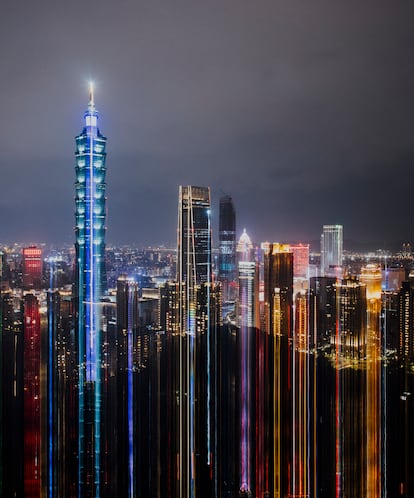
With this democratic opening, citizens of both shores were allowed to travel from one side to the other. Commercial ties were subsequently forged. Today, China is Taiwan’s largest trading partner – a huge paradox.
“The simplest and greatest source of economic stimulation came – ironically – from the source of Taiwan’s biggest headaches,” write Kerry Brown and Kalley Wu Tzu Hui in The Trouble with Taiwan (2019).
“Taiwanese have taken the last 30 years to realize that we are actually Taiwanese and part of Chinese culture, but [that] we have distinctive values: we believe in the rule of law, in a free and open society.”
The democratization of the island and its economic development have gone hand-in-hand with the emergence of this feeling of belonging. The transformation, when seen on a graph, is staggering: in 1992, only 17.6% of the island’s population considered themselves “Taiwanese.” Today, they are the majority – 60.8% – while the percentage of those who consider themselves “Chinese and Taiwanese” has fallen from 46.4% to 32.9% and those who consider themselves only “Chinese” has plummeted from 25% to 2.7%.
Embracing this identity, Lin argues, means waking up from the lethargy of recent years, when many thought that “trading with the enemy reduces the possibility of tension.” The lesson, she explains, is similar to the one Germany is now learning with Russia. Some Taiwanese – out of naivete – and others – out of pure self-interest and personal gain – trusted that trade with China would lead to the democratization of the Asian giant. She believes that this has not been the case. The confirmation of Xi Jinping at the head of all the state powers in China (after being re-elected for a third historic term) can only have one meaning: Xi intends to resolve the reunification of Taiwan during his lifetime. Lin opines that he will make his play if he is convinced that he will succeed – but if he fails, it could mean the collapse of the Chinese Communist Party.
Again, her face tenses: in the next 30 years, she sighs, the world is going to change completely. “It will be different from the one I grew up in… I tell my two daughters that.” She mentions how Beijing has imposed itself on Hong Kong, with a National Security Law that has swept away citizen resistance. “You don’t know what it’s like to lose your freedom, until you lose it.”
Kacey Wong
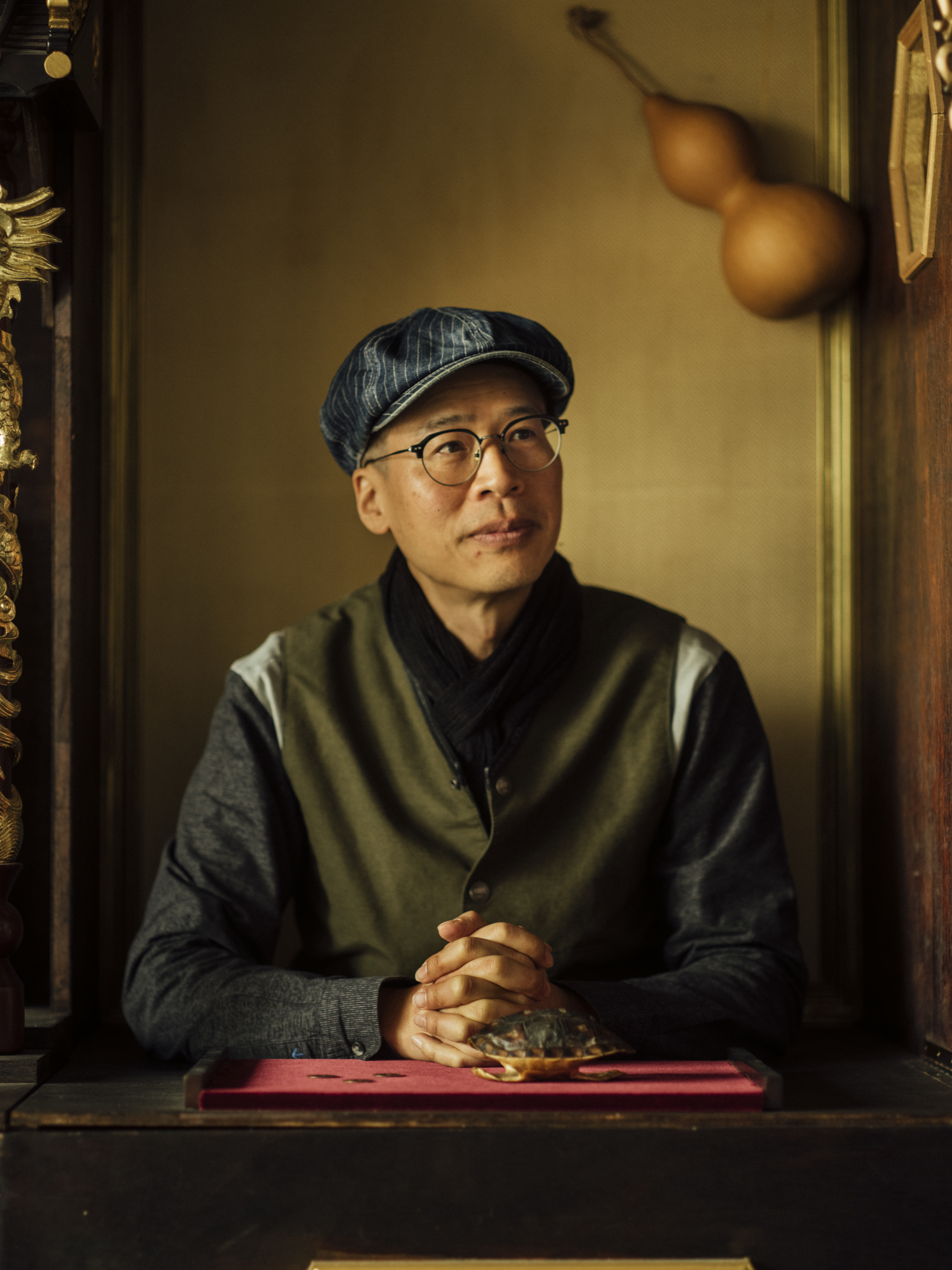
“Many Taiwanese saw what happened in Hong Kong, how people rose up and fought”
Kacey Wong – a Hongkongese artist “self-exiled” in Taiwan – has experienced this loss of freedom. In 2014, he participated in the birth of the pro-democracy protests in the former British colony. He also saw their end in 2020, after the approval of the National Security Law.
Wong recalls how many of his fellow activists were arrested and accused of subversion. Fearing for his own freedom, he made the decision to flee. He says he has now withdrawn “to the next battlefield” from “a war that has already started.” Today, he works on a ship in an indeterminate place on the island – a space where he stores some creations that he used to carry around in demonstrations, such as the red giant: a monster made of cardboard that has two dolls trapped in its fist. “The dolls [represent] the citizens of Hong Kong.”
In recent years, the former colony has experienced the largest exodus in decades. At least 144,000 Hong Kongers have flown to the United Kingdom since 2021. Public universities have lost many instructors. What happened, says Wong, has served as a warning to Taiwan about the “one country, two systems” model that Beijing offers for reunification. “Many Taiwanese don’t believe in that system anymore. They saw what happened, how the people rose up and fought.” That ongoing war he is talking about, he says, has to do with a certain person’s ambition. “Mao Zedong 2.0,” he scoffs, in reference to President Xi Jinping.
“Fuck Xi!” exclaims a man, while having dinner with friends in Taipei. Another man hugs himself in the chair: “I love Xi!” he laughs. While they smoke and drink beers, the first takes out a New Taiwan Dollar from his wallet. “We have currency, passports, soldiers. Taiwan is not part of China.” But a third man adds that, although Beijing acts as a “bully,” they must be friends. “We don’t want a war,” he cautions.
What ordinary people in Taiwan think about themselves and their relationship with China is not monolithic, but a majority (nearly 60% according to recent surveys) tend to answer that the ideal is to preserve the status quo. Some believe that this should last forever, while others hope to change things down the road. One financial sector employee calls this the “turtle strategy” – hide your head until you can complete your independence.
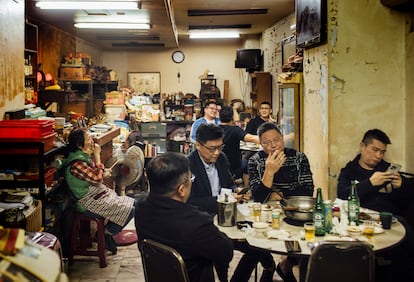
In the West, fears about Taiwan are high, with many interpreting the invasion of Ukraine as a warning. When Moscow decided to invade another country, in Brussels – where the European Union and NATO are based – politicians and advisers used to comment (off-mic) on the need to respond firmly in order to send a message to the Asia-Pacific region. A China-focused expert calculates the time window for Beijing to take steps towards reunification as being between 2024 – when there will be elections in Taiwan, the US and the EU – and 2027, when Xi’s third term ends. In a report that was leaked in February of this year, an American general said that his “instinct” told him that a conflict would break out in 2025 – although the Pentagon denies that this is an official position.
Living with those war drums in the background produces a certain cognitive dissonance. On a morning in Taipei, one can enjoy overpriced coffee at a foodie joint on the colorful Dihua Street – which still retains a certain 19th-century flavor – while watching people walk by. But on the same street, you can read alarming Taipei Times headlines on a newsstand: Washington plans to send more troops to Taiwan; Blinken says that what happens to the island is not an internal Chinese matter, but “a matter that literally worries the whole world”; the Taiwanese Ministry of Defense wants to increase the number of troops that will go to train in the United States. A US legislator – who recently visited Taiwan – calls for “learning the lessons of Ukraine” to “arm our friends and partners before it is too late.”
Things are likely to get even more tense as Taiwan’s presidential election – scheduled for January of 2024 – approaches. The contest will see the two big parties face off: the right-wing Kuomintang (KMT) – in opposition, currently advocating a rapprochement with Beijing – and the DPP, a Chinese-skeptic party, in government since 2016.
Alicia García Herrero – a Spanish analyst living in Taiwan and chief economist for Asia-Pacific at French investment bank Natixis – believes that Beijing will wait for the election results before taking any steps. If the KMT wins, she thinks, China probably won’t need to make an aggressive move. But if the DPP wins a third consecutive mandate, this creates a more unstable scenario. “If the DPP wins and is pro-independence enough, will there be a conflict? We don’t know.”
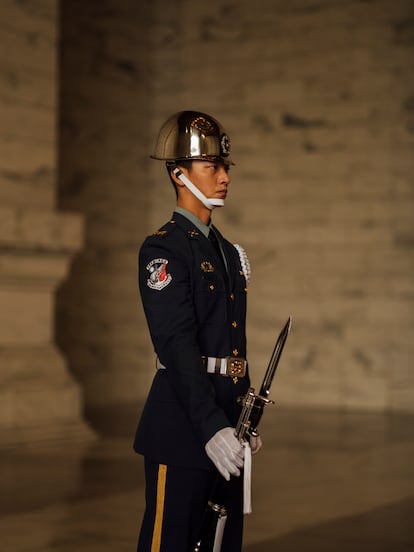
Many experts are already studying these potential scenarios. Lin Ying Yu – an assistant professor at Tamkang University, specializing in Chinese military capabilities – has projected the phases of a possible attack. The first thing that Beijing would do, he tells EL PAÍS via video call, is to blockade Taiwan. In this way, China could avoid what happened to the Russians in Ukraine, as Kyiv continues to receive supplies from the EU. Second, Beijing would use cyber-attacks and disinformation campaigns to prevent Taiwanese citizens from accessing reliable news. Third, they would seek to seize nearby islands – such as the Penghu Archipelago – to block the passage of the strait. Finally, if the Chinese government wants to directly attack Taiwan, “the first blow would be by firing missiles” at “the airport and the radar stations.” The landing, he concludes, would be done via helicopters, which would take off from the Chinese amphibious fleet.
The Washington-based Center for Strategic and International Studies has also projected how an armed conflict would take place. If war were to break out in 2026 and the United States decided to defend Taiwan with the help of Japan, the likely result would be a defeat for China… but at enormous cost to all, according to a study conducted in January. A few weeks of combat would result in more than 30,000 casualties.
“The United States and its allies would lose dozens of ships, hundreds of planes, and thousands of people. The high losses would damage the US global position for many years. While Taiwan’s [Armed Forces] are left intact, the island is badly damaged, with no basic services. The Chinese Navy, meanwhile, is in shambles… the core of its amphibious forces is destroyed and thousands of [PLA] soldiers are taken as prisoners of war,” the report reads. The EU would limit itself to imposing sanctions against China – World War III would be avoided. But the economic blow would be felt around the world, because of the size of the contenders and because Taiwan – with its massive semiconductor industry – has become essential.
With the planet undergoing a rapid digitization process, Taiwan’s geostrategic interest is almost comparable to that of the Central European coal and steel basins, over which so many shots were fired in the 20th century. The semiconductor sector is also part of the growing commercial, military and technological rivalry between the United States and China. Washington imposed a blockade on the export of the most advanced chips to China in October, with allies such as Japan and the Netherlands joining the effort. The intention is to prevent China from developing more sophisticated weapons. Beijing has criticized this policy as an American formula to contain its development, launching its own efforts to produce next-generation semiconductors.
In March – during his first speech after being re-elected president – Xi Jinping urged the pursuit of “scientific and technological self-sufficiency,” assuring his party that he would modernize the army to turn it into “a great wall of steel.” He also reiterated that the People’s Republic will not be complete until reunification with Taiwan.
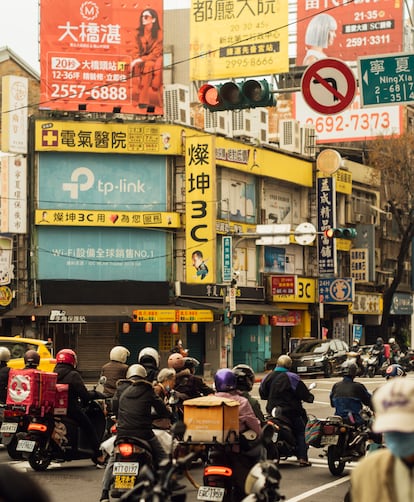
“Semiconductors have almost replaced steel as the foundation of modern industry,” says Miin Wu, who has dedicated his life to building up a multinational memory chip company called Macronix. He denies that he feels the strain in the strait on a daily basis. He avoids exporting prohibited products to China, admitting that commercial ties have suffered. But, while being interviewed one morning at his headquarters – located in Hsinchu, Taiwan’s tech hub – he says that he continues “doing business as usual.”
Wu, 75, takes EL PAÍS on a tour of the small museum within his headquarters, which is dedicated to the company he founded in 1989. He explains the process of creating chips, from the casting of silicon ingots to microscopic cutting. He also narrates his personal odyssey, from emigrating to the United States to study engineering at Stanford, to his return to Taiwan, in a reversal of brain drain.
In the museum, there are exposed devices – from game consoles to space vehicles – inside of which are memory chips. Wu believes that it’s almost impossible for China or other countries to immediately replicate the most advanced semiconductors. In Taiwan, they’re already developing chips that are three nanometers in size, while China is still aiming to get down to seven nanometers. They’ll eventually catch up… but it will take “10 or 20 years.” He sees this as a formula for Taiwan: “If we can continue to create world-class technology, we can survive.” But fame is a double-edged knife. “Maybe because we’re doing too well, we’re attracting the attention of the big two (the US and China).”
The Hsinchu technology park is home to some 600 companies and generates about $57 billion in yearly revenue. TSMC – manufacturer of most of the world’s advanced chips – has its headquarters there. In this renewed interest in technological self-sufficiency, Washington has reached agreements with the company to manufacture its most advanced integrated circuits in the United States. An industry source believes that this is also a way of backing up technology in case things go sour in Taiwan.
Ting Lu
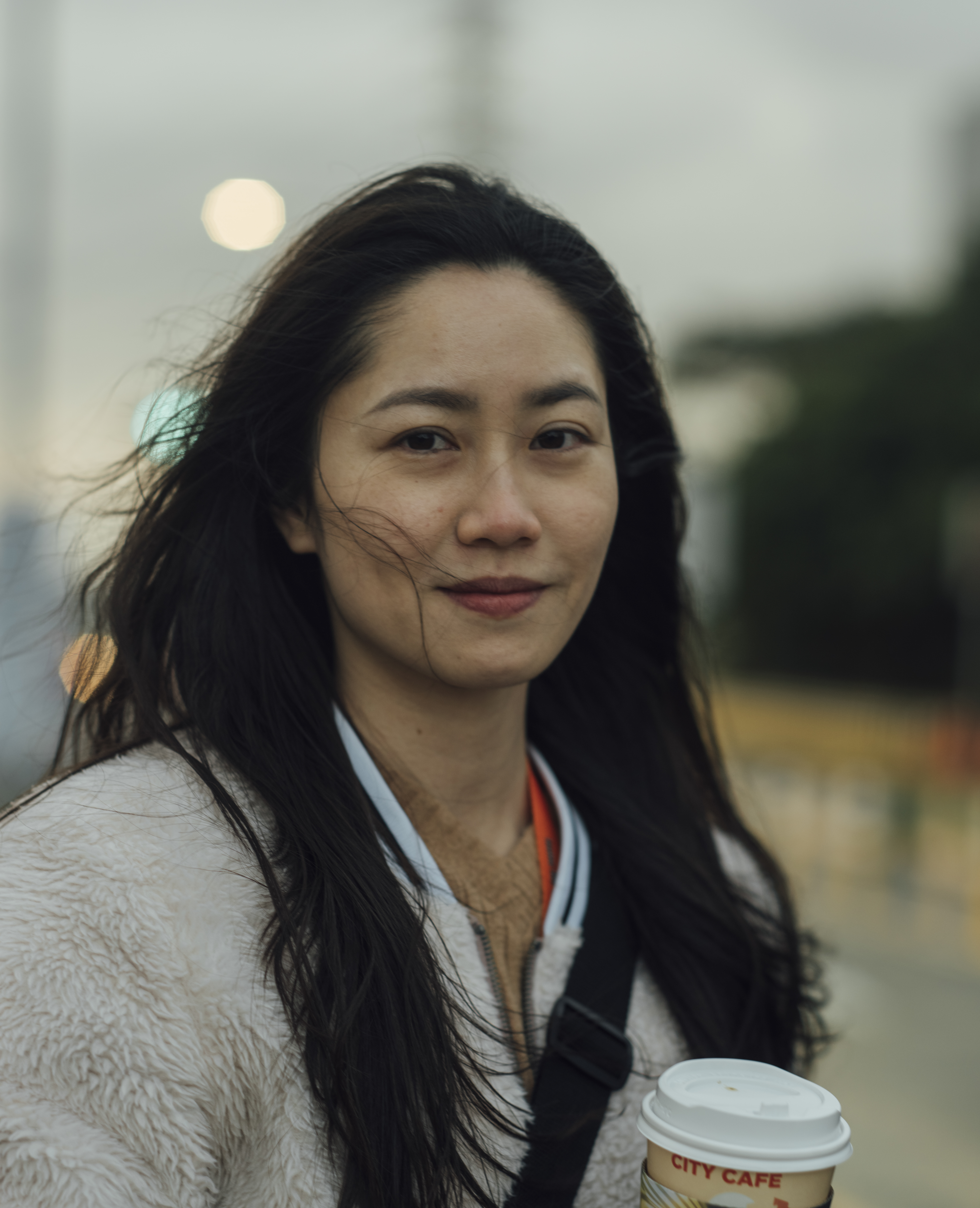
“I just hope we can continue being Taiwanese”
TSMC headquarters is an impenetrable complex. At around five in the afternoon, workers exit, having finished their shift. In the parking lot, Ting Lu, 28, a software engineer, says she is employed by a subcontractor that supplies TSMC with “high-tech machines” that make it possible to create cutting-edge chips. They’re just “one of many vendors” affected by the US blockade of chip exports to China. Regarding relations in the strait, she expresses her hope that “we can continue to be Taiwanese.”
The Pelosi incident, the war in Ukraine and China’s growing belligerence have placed defense capability at the center of political debate. Many wonder if Taiwan is ready for an invasion. “It’s absolutely not prepared” for a war scenario, affirms Chang Yenting, a retired lieutenant general who served in the Taiwan Air Force. Chang believes that there are hardly any gas and oil reserves on the island, nor enough hospital beds. There are logistical problems, a gap in war material… and the fact that citizens aren’t interested in the armed forces. “Nobody wants to attend military academies,” he laments.
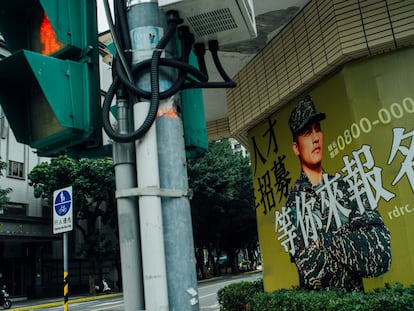
President Tsai Ingwen has taken steps to improve training. In recent years, compulsory military service has been reduced from two years to four months. But in December, the government decided that, starting in January of 2024, men born after 2005 will have to serve for 12 months. The measure has the public’s support: in October, a survey stated that 83.3% of Taiwanese agree with the following statement: “The most important lesson that the war in Ukraine has for national defense education is that you must fight to save your own country,” according to the official Taiwanese news agency, CNA.
One of the things Taiwanese military commanders are most interested in is how to make troops “fight fiercely” – a decisive factor in Ukraine, says Ukrainian analyst Yurii Poita, now with the National Defense and Security Research Institute in Taipei. He studies what conclusions Beijing can draw from the war: “If Russia can occupy a part of the Ukraine and maintain its position and if Europe tolerates it, it will be a signal to China that nobody will do anything,” he tells EL PAÍS at the end of February, during a demonstration in solidarity with his country, called one year after the invasion in Taipei’s Freedom Square.
Poita believes that the war shows Taiwan “that economic cooperation cannot prevent a war; that the most tragic scenario can happen, and that you have to hope for the best… but prepare for the worst.”
The demonstration was also attended by Peifen Hsieh – director of international affairs for the DPP, the government party – who spoke of the “similarities” between Ukraine and Taiwan:
“We both face very powerful and aggressive neighbors with territorial ambitions.” Russia and China, she notes, are allies in many aspects, so it’s key for Taiwan to “increase military cooperation” with Washington… something that Beijing considers to be a provocation.
“I wonder what’s not a provocation for them – except that we surrender to their demands,” she huffs. “You can only have peace if you’re strong enough. We don’t want a military conflict – but we’re not going to give in to their intimidation, either.”
Chang Yenting
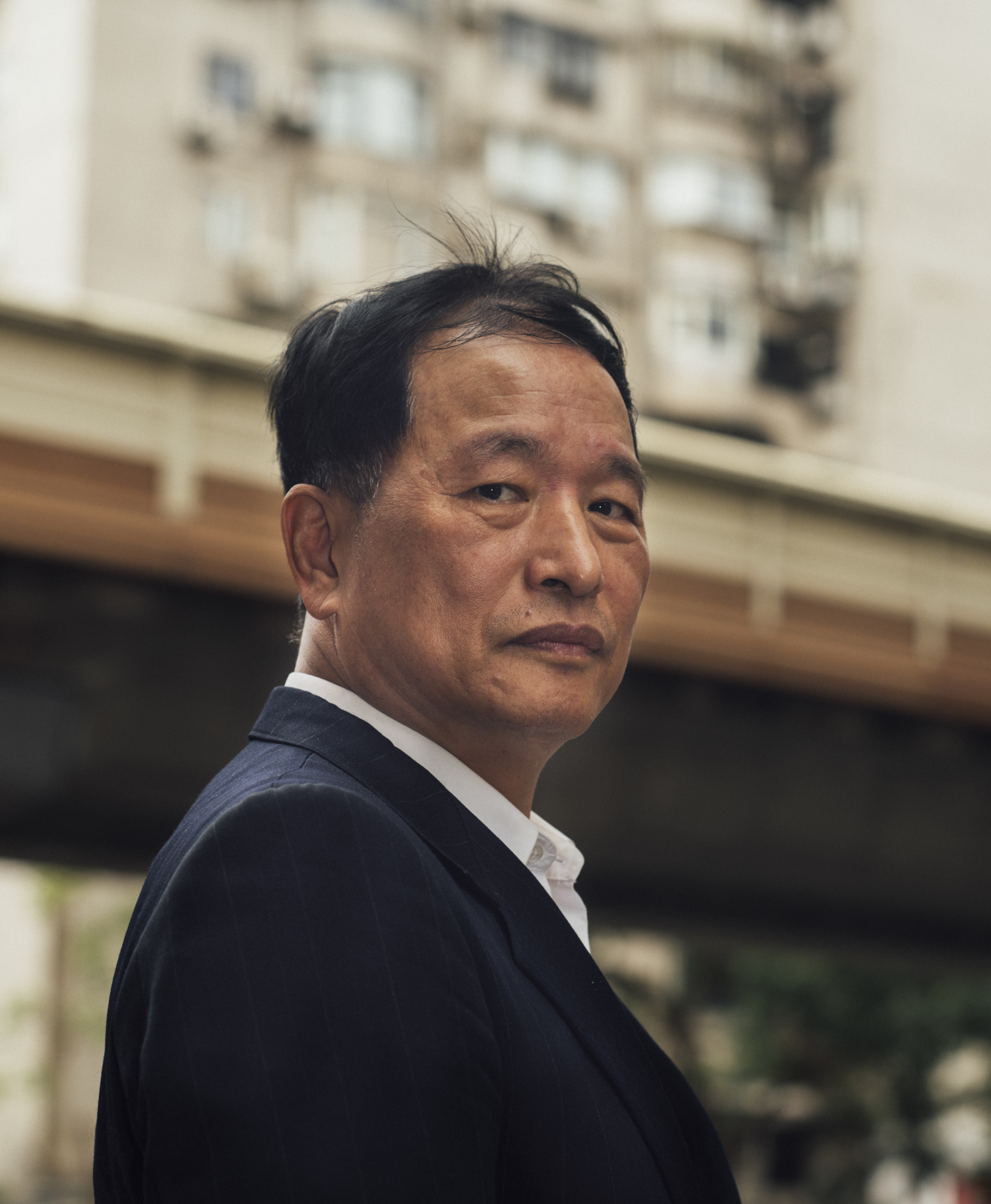
“Nobody wants to attend the military academies”
The largest opposition party – the KMT – sees things somewhat differently. Its leadership also wants to avoid war, but by encouraging trade ties and more exchange. They have a background that supports their position: the time of greatest rapprochement and détente with Beijing was lived during the presidency of Ma Yingjeou (2008-2016). Recently, while President Tsai was visiting the United States, Ma travelled to Beijing.
“Given the history of poor relations with the People’s Republic, at least we know how to best communicate with them,” says Wu Iding, a KMT lawmaker. “If you want to make peace with the other person, you don’t keep pushing them. You try to understand them. That’s what we did when the KMT ruled.”
The exchanges and trips, he adds, are necessary. “Once you have friendship, business or any connection, you are less likely to want to hit the other.”
One of the bases of the current relationship is the 1992 consensus, by which Beijing and Taipei recognized the existence of a single China, with different interpretations. That ambiguity is “the trick” to avoid disaster. While accusing the DPP of wanting to break the status quo (since complete independence is among its principles) Iding wonders: “Are we happy with this situation?” He thinks that “ambiguity… is the way we survive.”
The rapprochement promoted by the KMT reached its peak in 2015, when Xi Jinping met with Ma Yingjeou in Singapore. In line with the policy of ambiguity, they avoided addressing each other as “president.”
The excessive harmony marked Ma’s administration. The KMT subsequently lost the 2016 elections against Tsai Ingwen, a China-skeptic. The student movement was also decisive: hundreds of young people took control of the National Assembly in 2014 for three weeks, until they blocked the signing of a new free trade agreement with China. The protest spawned a new generation of politicians.
Miao Poya
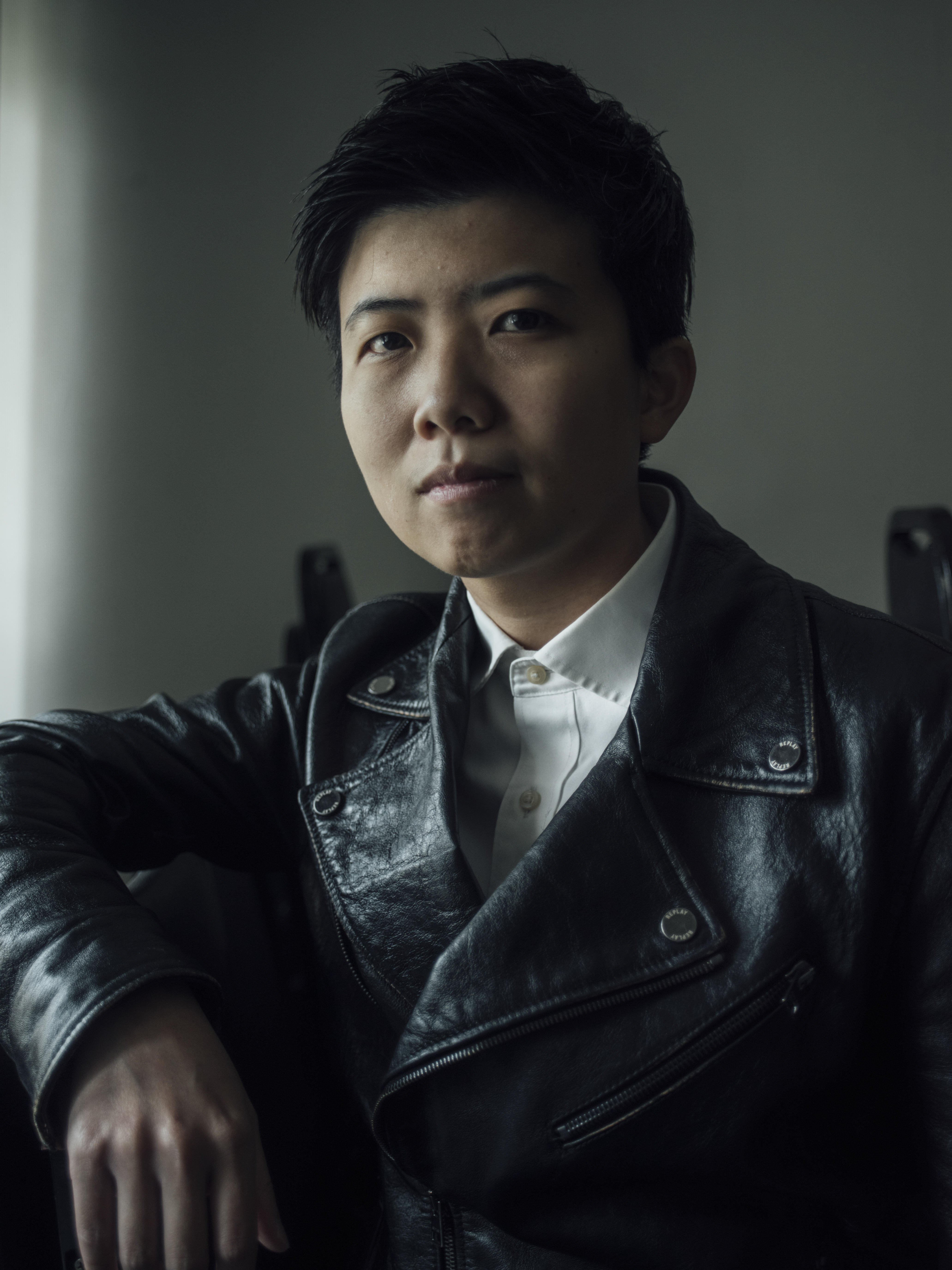
“My generation cannot accept being ruled by a dictatorship”
Miao Poya – a Taipei city council for the Social Democratic Party – is part of that new wave.
Born in 1987 – the year martial law ended – she defines Taiwan as a “still very young but vibrant democracy.” This, she says, is the big difference with China: “My generation cannot accept being ruled by a dictatorship.”
Miao – a well-known LGBTQ activist – believes that the Taiwanese enjoy a “de facto independence” that lacks only international recognition. She is aware that maintaining the status quo is necessary for regional stability and sees international recognition as a “long-term” goal. She believes that the tension in recent years has to do with Xi’s decade in power, which has placed reunification at the center of “the propaganda of his dictatorship.” She assures EL PAÍS that Beijing has increased the pressure since the DPP took power, using intimidation tactics so that the Taiwanese people stop voting for a party that diminishes the possibilities of reunification. Xi makes it clear that, if the Taiwanese make their own choices, “[China] will be very dissatisfied.”
In her opinion, the history of the 20th century shows that paying attention is the best way to deal with “a dictatorship.” One day after the interview with this newspaper, the politician finds herself on the stage of a pro-Ukrainian demonstration. Microphone in hand, she draws a thread between Taipei and Kyiv: “We are like two candles in a very dark room. With our sacrifices, we want to illuminate democracy and freedom in the world!”
Tu suscripción se está usando en otro dispositivo
¿Quieres añadir otro usuario a tu suscripción?
Si continúas leyendo en este dispositivo, no se podrá leer en el otro.
FlechaTu suscripción se está usando en otro dispositivo y solo puedes acceder a EL PAÍS desde un dispositivo a la vez.
Si quieres compartir tu cuenta, cambia tu suscripción a la modalidad Premium, así podrás añadir otro usuario. Cada uno accederá con su propia cuenta de email, lo que os permitirá personalizar vuestra experiencia en EL PAÍS.
¿Tienes una suscripción de empresa? Accede aquí para contratar más cuentas.
En el caso de no saber quién está usando tu cuenta, te recomendamos cambiar tu contraseña aquí.
Si decides continuar compartiendo tu cuenta, este mensaje se mostrará en tu dispositivo y en el de la otra persona que está usando tu cuenta de forma indefinida, afectando a tu experiencia de lectura. Puedes consultar aquí los términos y condiciones de la suscripción digital.









































